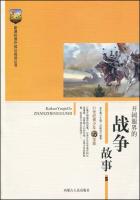(P.202-206.) This is wide enough: still he imposes a limit;for consciousness " is an immediate not a mediate knowledge." (p.202.) Already, as it seems to me, inconsistencies are beginning to creep in -- for he had told us first that consciousness includes "all the phenomena of the thinking subject;" now be so limits it as to exclude ,mediate knowledge," which is surely a modification of the thinking subject.Consciousness is represented as including belief; and yet it must exclude all those beliefs in which the object is not immediately before us.He stoutly maintains what no one will deny, that this general consciousness is not a special faculty; but when he comes to draw out a list of faculties in the second volume, he includes among them a special faculty, which he calls consciousness, but to which, for distinction's sake, he prefixes self, and designates it self-consciousness.It is the office of this special faculty to afford us a knowledge of the phenomena of our minds." (Vol.II.p.192.) He justifies himself in drawing a distinction between sense-perception and self-consciousness on the ground that, "though the immediate knowledge of matter and of mind are still only modifications of consciousness, yet that their discrimination as subaltern faculties is both allowable and convenient."Such is the doctrine and such the nomenclature of Hamilton {436} on this subject.I confess that I have great doubts of the propriety of applying the phrase "consciousness," both in this general and specific way.In the first sense "Consciousness constitutes, or is co-extensive with all Our faculties of knowledge," and he speaks of our being endowed with a faculty of cognition or consciousness, in general (Vol.2.p.10), and says that "consciousness may be regarded as the general faculty of knowledge." Now it is certainly desirable to have a word to denote our faculties of knowledge, or of immediate knowledge but why not call them knowing powers, or cognitive powers, and their exercise or energy, knowledge or cognition, and then the word " consciousness " would be reserved unambiguously for the cognizance which the mind takes of self in its particular states.The word (from <con scio> to know together with) seems the appropriate one to denote that knowledge of self which co exists with all our other knowledge of things material or things spiritual; and indeed with all our other mental exercises, such as feelings and volitions.It is certainly in this sense that the term is employed by Hutcheson, by Reid, by Stewart, by Royer Collard; and all Hamilton's vehement criticisms of these men are inapplicable and powerless, for this very obvious reason, that they use the word consciousness as he uses self-consciousness, acknowledged by him to be a special faculty.It is an inevitable result of using the phrases in two senses, a wider and a straiter, that we are ever in danger of passing inadvertently from the one meaning to the other, and making affirmations in the one sense which are true only in the other.I rather think that Hamilton himself has not escaped this error, and the confusion thence arising.lie is ever appealing to consciousness, as Locke did to ideal and Brown did to suggestion; but we are not always sure in which of the senses, whether in both, or in one, or in which one.He is ever ascribing powers to consciousness, which he would have explained, or modified, or limited, if the distinction had been kept steadily in view.Thus he is often announcing that consciousness is the universal condition of intelligence; if this is meant of the general consciousness, it can mean no more than this, that man must have knowing powers in order to know; if meant of the special consciousness, it is not true; it is rather true that there must be some mental exercise as a condition of the knowledge of {437} self.He calls the principles of common sense the facts of consciousness, emphatically;whereas these principles, as principles, are not before the consciousness as principles at all.The individual manifestations are of course before the consciousness (though not more so than any other mental exercise), but not the principles themselves, which are derived from the individual exercises, by a reflex process of abstraction and generalization.He speaks everywhere as if we must ever be conscious at one and the same time of subject and object, --meaning external object; whereas we may be conscious of the subject mind thinking about some state of self present or absent.His <quondam> friend, Professor Ferrier, carried the doctrine a step farther, and maintained that a knowledge of self is a condition of all knowledge of not self, whereas it is merely a fact that the one co-exists with the other in one concrete act, in which we know not self to be different from self, and independent of self.
III.The Conservative, Reproductive, and Representative faculties might all have been included, I think, under one head, with subdivisions.The account which he gives of this group is upon the whole the best which we have in our language.Still there are oversights in it.Thus, in order to make the analysis complete, I should have had the recognitive power, or that which recognizes the object recalled as having been before the mind <in time past>.Had he given this power a separate place, he would have seen more clearly than he does how the idea of time arises.Along with the mere representative power he should have mentioned the compounding or grouping power of imagination, which combines the scattered images into one new whole.He refers at times to man's native power of using signs; why not specify a symbolic power, enabling man to think by signs standing for notions.















